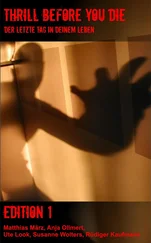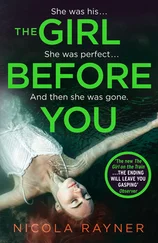“Bedtime is supposed to be ten. You know that. But, yes, it’s fine to stay up a little late to finish your history. I think Sandy would be angry with me if I didn’t give you that extension,” she agreed, referring to Charlotte’s history teacher, an older fellow on the faculty whose actual name was Sanford Clunt but (thank God) insisted that his students call him by his first name instead of his last.
“Thanks,” she said, and then she jumped off the bed and retrieved her history textbook from the floor by her desk. When she returned to her mother she smiled and murmured, “Good night.” Then Charlotte waited, clearly expecting her to leave.
“One thing,” Catherine said, instead of rising.
“What, Mom?”
“Last Friday, when we had breakfast with Paige Sutherland, you got upset.”
“It felt like you were accusing me of shooting Dad on purpose.”
“I simply asked if there was something else you wanted to tell us. And the idea that there might be more to what happened than I knew only crossed my mind because you”-and she wanted to phrase this perfectly-“expressed some concern about a lie detector test.”
The child nodded.
“So?” she asked Charlotte now. “Do your father and I know absolutely everything we need to know about that night in New Hampshire?”
“Scouts honor.”
“You’ve never been a scout.”
“Then yes.”
“Yes?”
“Mom!”
“I’m just making sure.” She sat up and pulled her child to her, and held her for a long moment. She savored the fruity smell of Charlotte’s shampoo, and surprised herself by whispering into her ear that she loved her. She guessed she surprised the girl, too. Every bit Nan Seton’s daughter, Catherine knew she was not particularly effusive. Then she kissed Charlotte, stood up, and went to the door. From the frame she reminded her not to stay up too late.
When she returned to her own bedroom, she felt better. Not completely reassured. But better. A little bit better.
CHARLOTTE STARED at the page in her history book, her eyes glazing and the words growing indistinct. She simply couldn’t concentrate. She wondered if someday she might be a lawyer instead of a great actor. She hadn’t lied to her mother; she had in fact answered her question with what she considered scrupulous accuracy. She had told her that she and Dad knew everything they needed to know about that night. That was all.
And her parents did know everything they needed to know. They most assuredly did not need to know about the marijuana or the beer. They did not need to know what she was feeling when she pulled the trigger. The truth was, she herself didn’t even know anymore.
The one absolute and inescapable reality was that she had crippled her father for life, and the best way she could help him now was to do all that she could to assist with his lawsuit and his campaigns for FERAL. And if that meant not telling the lawyers everything at the deposition, then so be it. So be it.
So-and she drew out the first syllable as if she were a little British girl in the late nineteenth century, before snapping the last two together-be it.
When John arrived for a meeting in Chris Tuttle’s imposing office with its views of the lake on Friday morning, he was surprised to discover a second man standing by the window, watching a lone, large sailboat cut its way south through the water. Instantly, he decided that given the way this stranger was dressed-a denim shirt with a string tie and black pants tucked into a pair of auburn cowboy boats inlaid with snakeskin-the guy wasn’t a lawyer. He guessed the fellow was about his own age, maybe a couple of years older: His hair was starting to recede and his skin looked as worn as his boots. He had a pair of silver and turquoise bracelets on his wrist and similar silver rings on three of his fingers.
Tuttle motioned for the two men to join him around his desk, explaining to John as he introduced them that this stranger was a ballistics expert. His name was Mac Ballard, and since he’d been testifying the day before in a trial in Albany, Tuttle had been able to commandeer him this morning. He lived just outside of Santa Fe, and he wasn’t flying back until Saturday.
“When I called his office yesterday and learned he was only a few hours south of us, I grabbed him,” Tuttle said to John, as he retook his seat on the far side of his great steppe of a desk. “We may be a nonparty, but it behooves us to know all we can about your rifle.”
“You replace your gun yet?” Ballard asked John, smiling. He spoke slowly, forcefully, his voice a deep combination of inappropriate interest and menace.
“No.”
“Want a suggestion on a different piece of hardware?”
“No.”
He nodded. “I see. You already got your mind set on one.”
He started to say no once again, but he stopped himself. He knew it was completely unreasonable to dislike this man on sight. Ballard was here, after all, on his behalf. He just wished Tuttle had consulted him first. But, then, would he really have told his lawyer not to bring Ballard in? Of course not. His discomfort had nothing to do with surprise. Rather, it was because this Mac Ballard knew all about guns and he didn’t, and possessed a critical knowledge he lacked. It was because around Ballard, he was the moron who couldn’t pop out a round from a thirty-ought-six.
“John has no plans to resume hunting anytime soon,” he heard Tuttle answering for him. “Why don’t you two sit down? John, you want some coffee?”
“Oh, I’m fine. Thank you,” he said, taking the seat that didn’t have the well-worked leather pouch beside it. He wondered if the damn thing was a saddlebag with a strap. “We should get through this as quickly as possible-whatever it is, Chris, you want us to accomplish this morning-because I’m only working a half day today. And, believe it or not, I really do still have clients of my own.”
“Everything all right?” Tuttle sounded concerned.
“You mean the half day?”
“Uh-huh.”
“Oh, yeah. As fine as things can be in my life these days. Sara and I are picking up Willow at school around lunchtime and driving to New York City. Her birthday’s coming up. That’s all.”
“Very nice, very nice,” Tuttle muttered. “Okay, then. I’ve told Mac what happened, all we know about the gun, and-”
“It was a good gun you had there,” Ballard said, jumping in. He had crossed his legs, his ankle precisely atop his knee. The boot-its toe looked pointy enough to gouge out a splinter in skin-was practically in John’s lap. “There won’t be a problem with the extractor. Trust me. It’s solid. Well tooled.”
“That’s what I gather. A friend of mine-a friend of both of ours,” John said, motioning at Tuttle, “suggested the same thing. A sportsman named Howard Mansfield. He’s a justice here in Vermont. He said it might be the ammunition. I was using Menzer Premiums, you see, and he said that sometimes a Menzer Premium in an Adirondack rifle-”
“Myth.”
“Myth?”
“Some people have this myth in their heads that you need Adirondack ammunition in an Adirondack rifle. What’d he say? The rim on the casing was too shallow for the extractor?”
“Essentially.”
“Malarkey.”
“Howard Mansfield is a smart man. As soon as we examine the rifle, we’re going to try loading some other bullets from that same box into the weapon. See if the extractor has difficulties with any of those.”
“Look, I don’t want to malign your pal. Maybe you got that rare cartridge with a defective casing. And maybe…” He paused for a brief moment, thinking, and John restrained his desire to jump in and tell this Mac Ballard just how smart Howard Mansfield really was. “And maybe you loaded and unloaded so many times that you really did manage to ding the casing. You know, you ripped off a small piece of the rim so the extractor would have nothing to grab. That, it seems to me, is a more plausible scenario than the idea the round was defective to begin with.”
Читать дальше











